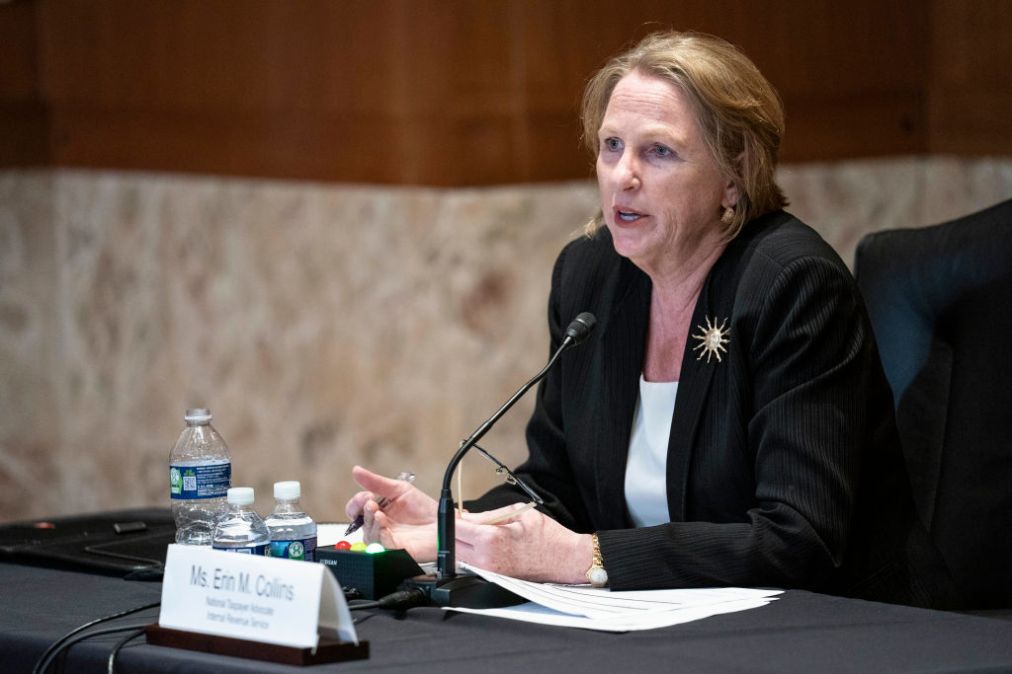IRS needs funding shift to continue ‘transformational’ modernization work, national taxpayer advocate says

The IRS has “turned a corner” in its protracted journey to modernize systems and improve customer service, though maintaining that momentum may depend on the reallocation of some Inflation Reduction Act funds, the national taxpayer advocate said Wednesday.
In her mid-year report to Congress, Erin M. Collins — who serves as the “voice of the taxpayer” within the tax agency — said the 2024 filing season showed the IRS has “progressed from a place of despair to a place of hope and optimism for the future of the agency and therefore for taxpayers,” and she’s “bullish that the taxpayer experience will continue to improve.” But that bullishness is based on “additional multiyear funding provided by” the IRA, the 2022 law that delivered $58 billion to the tax agency.
Collins noted in her report that from that topline figure, just $3.2 billion was allocated to taxpayer services and $4.8 billion was ticketed for business systems modernization. Projections from the IRS have those funding sources drying up in fiscal year 2026, and Collins reiterated in her report that Congress should reallocate or permit the tax agency to move IRA funds to those buckets from its enforcement account.
Collins hopes to have some sympathetic congressional ears for that request: While Republicans have consistently railed against increased funding for enforcement efforts, taxpayer services and IT modernization have largely been spared from GOP ire, she noted. (The IRS’s Direct File program is another story).
“When I look back eight years from now on how the IRS spent its Inflation Reduction Act funding, the changes I consider ‘transformational’ will primarily involve the deployment of new technology and innovative thinking,” Collins wrote.
Multiple fiscal 2025 objectives for the IRS called out in Collins’s report are tied to technology. The national taxpayer advocate pushes the agency to further modernize its systems, pointing specifically to its paperless processing initiative and the fact that “most paper-filed Forms 1040 are still manually transcribed.” Responses to IRS notices via the agency’s Document Upload Tool are similarly still processed “as if they were submitted on paper.”
Collins also pushed in the report for more transparency from the agency through technological improvements and better explanations of the modernization process.
“Many of the IRS’s plans to improve transparency rely on updating the agency’s technology,” Collins wrote. “As the IRS’s modernization of technology involves the implementation of artificial intelligence (AI), such as in existing voicebots and chatbots, the IRS must remain transparent about its use of AI, particularly as those uses affect taxpayer rights and data privacy.”
IRS modernization was a hot topic in a separate report to Congress released Wednesday by the Electronic Tax Administration Advisory Committee, which delivered three recommendations to lawmakers and another nine to the tax agency.
Among ETAAC’s tech recommendations to the IRS were a call to enable API access to taxpayer information “to disrupt scams, promote modernization, accuracy, security and efficiency in the taxpayer experience” and the removal of barriers to electronic filing paired with strengthened security measures. The advisory board also urged the IRS to “facilitate electronic filing for certain low volume information returns and other non-cyclical filings.”
“The committee has helped on a variety of fronts to help improve tax administration,” IRS Commissioner Danny Werfel said in a statement. “The IRS leadership team will carefully review the recommendations in this report.”

